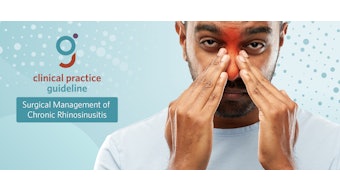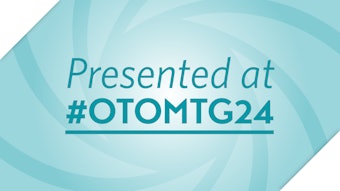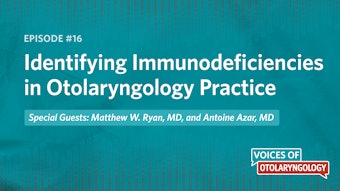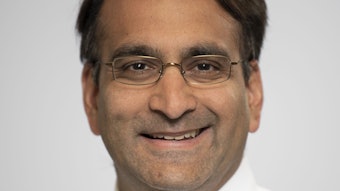Behind the Peer Review: A Conversation with Marco Antonio Figueroa-Morales, MD, MSc, MEd
2024 Star Reviewer Dr. Figueroa-Morales shares how his 12-year peer review journey has enhanced both his clinical practice and teaching while contributing to global otolaryngology research.
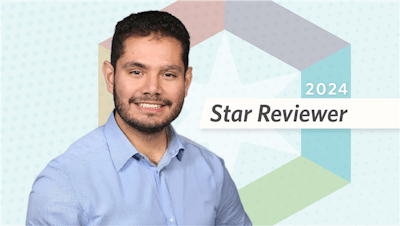
 2024 Star Reviewers (Left to Right): Richard K. McHugh, MD, PhD, Mark A. Arnold, MD, Conner J. Massey, MD, Patrick T. Tassone, MD, Janet S. Choi, MD, MPH, Marco A. Figueroa-Morales, MD, MSc, MEd. Not pictured: Jakob L. Fischer, MD, Christopher W. Noel, MD, PhD, and Ahmad R. Sedaghat, MD, PhD (Star Reviewer Emeritus).
2024 Star Reviewers (Left to Right): Richard K. McHugh, MD, PhD, Mark A. Arnold, MD, Conner J. Massey, MD, Patrick T. Tassone, MD, Janet S. Choi, MD, MPH, Marco A. Figueroa-Morales, MD, MSc, MEd. Not pictured: Jakob L. Fischer, MD, Christopher W. Noel, MD, PhD, and Ahmad R. Sedaghat, MD, PhD (Star Reviewer Emeritus).
What is your area of research focus within otolaryngology-head and neck surgery?
I have worked in public hospitals for 15 years and just three years in a tertiary facility. I am also in private practice. I like teaching the specialty to my undergraduate groups as an associate professor of the specialty program in my hospital. I have not had a specific focus area of research, but the work with my residents and my thesis during my master's degree has been oriented more toward general otorhinolaryngology and rhinology. I am looking to pursue a doctoral degree soon.
Tell us about your path to becoming a Star Reviewer.
Approximately 12 years ago, I started reviewing as a way to practice the knowledge I had acquired through my first master's degree in clinical research. At that time [former Editor-in-Chief] Richard M. Rosenfeld, MD, MPH, had made instructional videos for new reviewers, and I found it an excellent opportunity to learn reviewing skills. I have extended to four journals: Otolaryngology–Head and Neck Surgery, OTO Open, the Brazilian Journal of Otorhinolaryngology, and the Medical Journal of the Mexican Social Security Institute.
How do you make time for high-quality reviews with clinical responsibilities and other demands?
This is a challenge at some times of the year because far from lightening some workload, it accumulates more and more. I try to allow myself the time to enjoy learning something new and, for this, it helps me a lot to be a reviewer. Reviewing allows me to read two or three submissions a month, and I learn more statistics and methodology in the process, and of course, about the subject of the manuscript. Needless to say, balancing work and personal life is complicated, but I think all physicians suffer from these difficulties. However, I enjoy the review exercise.
What wisdom would you share with the next generation of aspiring peer reviewers?
For those who are starting, allow yourselves to learn, make mistakes, and be respectful in your reviews. When you are not familiar with certain methods or some type of statistical analysis, commit yourselves to reading a little about them and becoming a better reviewer every day. For those of us who want to keep improving, you can get a degree, such as a master's or doctorate, in clinical research. These are tools that make us better in our daily clinical practice. And importantly, reviewing can encourage us to write our own articles (a task that is difficult for me).
Tell us about one of your own publications you are particularly proud of.
There is one article that I co-authored two years ago with a group of the Academy physicians, on the Outcomes Research and Evidence-Based Medicine committee about the use of steroids in otolaryngology: “Systemic Steroids for Otolaryngology–Head and Neck Surgery Disorders: An Evidence-Based Primer for Clinicians."1 It was a rewarding experience and a great challenge for me, as I had not had the opportunity to write with such an outstanding group of physicians before. It was a big stepping stone in my research training.
*The Star Reviewer recognition is awarded annually to the top reviewers across the OTO Journals; Star Reviewers must meet criteria for both the volume and excellence of their reviews. To learn more about the benefits of becoming a peer reviewer for the OTO Journals, visit Why Peer Review for the OTO Journals.
**The Resident Reviewer Development Program is not open for applicants at this time, but interested residents can learn more about the program here.
Reference:
- McCoul ED, Megwalu UC, Joe S, Gray R, O'Brien DC, Ference EH, Lee VS, Patel PS, Figueroa-Morales MA, Shin JJ and Brenner MJ. (2023), Systemic Steroids for Otolaryngology–Head and Neck Surgery Disorders: An Evidence-Based Primer for Clinicians. Otolaryngology–Head and Neck Surgery, 168: 643-657. https://doi.org/10.1177/01945998221087664
Related Articles in the Bulletin:
Become a Peer Reviewer for the OTO Journals
Behind the Peer Review: A Conversation with Star Reviewer Janet Choi, MD
Behind the Peer Review: A Conversation with Star Reviewer Patrick Tassone, MD







